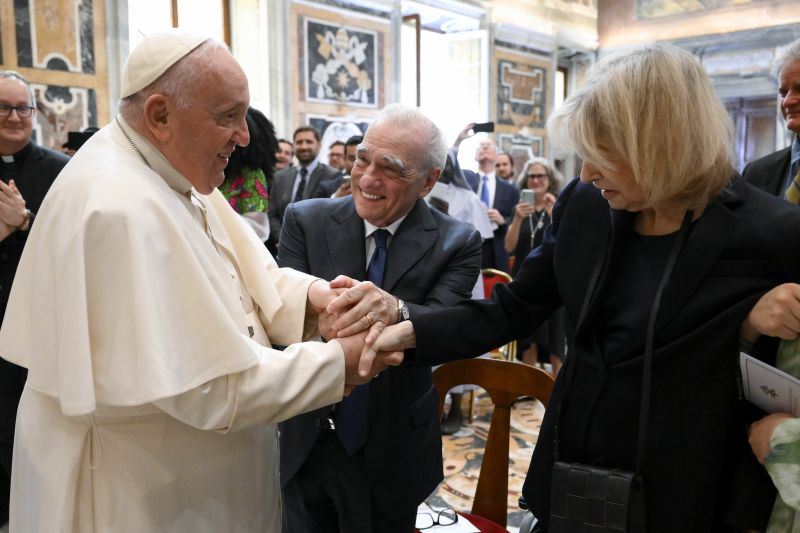
Rome Newsroom, May 27, 2023 / 07:09 am (CNA).
Pope Francis resumed his normal schedule of appointments on Saturday morning after suffering from a fever the day prior, a Vatican communications official said.
Andrea Tornielli, the editorial director of the Vatican’s Dicastery for Communication, wrote on Twitter on the morning of May 27 that Pope Francis had “resumed his regular audiences.”
Questa mattina #PapaFrancesco ha ripreso regolarmente le udienze
— Andrea Tornielli (@Tornielli) May 27, 2023
A Vatican spokesman confirmed to CNA on Friday that the pope had canceled meetings in the morning May 26 due to a fever.
Matteo Bruni, director of the Holy See Press Office, said that “due to a feverish condition, Pope Francis did not receive [anyone] in audience this morning.”
According to the Vatican’s daily news bulletin, Pope Francis had his regular Saturday morning meeting with the prefect of the Dicastery for Bishops, Archbishop Robert Prevost.
He also met with delegations from the Orthodox Church of Athens and Loyola University of Seville, and with Father Wagner Ferreira da Silva, president of the Brazilian Catholic community Canção Nova.
The pope also had an audience with participants in a conference organized by the Jesuit magazine “La Civiltà Cattolica” and Georgetown University on “The Global Aesthetics of the Catholic Imagination.”
Film director Martin Scorsese and his wife Helen Morris attended the conference and took part in the papal audience.
On Friday afternoon, Cardinal Pietro Parolin, the Vatican’s Secretary of State, spoke briefly with journalists about the pope’s condition.
“The pope was tired. He had a very, very busy day yesterday,” Parolin said, according to the French-language media outlet La Presse. “They were telling me last night that he met with a lot of people, and in the context of this meeting with Scholas Occurrentes, he wanted to greet them all, and probably at some point the stamina fails.”
Pope Francis is scheduled to say Mass in St. Peter’s Basilica for the solemnity of Pentecost on May 28, followed by the recitation of the Regina Caeli antiphon.
The 86-year-old pope was hospitalized for four days at the end of March for a lung infection.
If you value the news and views Catholic World Report provides, please consider donating to support our efforts. Your contribution will help us continue to make CWR available to all readers worldwide for free, without a subscription. Thank you for your generosity!
Click here for more information on donating to CWR. Click here to sign up for our newsletter.





Wishing the Holy Father strength and stamina at Pentecost and beyond. God bless.